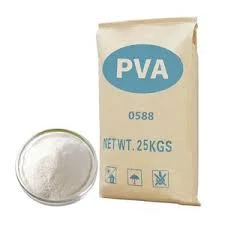Cellulose for Industrial Applications A Sustainable Solution
Cellulose, the most abundant organic polymer on Earth, has carved a niche for itself in various industrial applications due to its sustainability, biodegradability, and versatility. Derived primarily from plant cell walls, cellulose offers a wealth of benefits, making it an attractive choice for industries ranging from textiles to pharmaceuticals.
One of the most significant uses of cellulose in the industrial sector is in the production of paper and cardboard. Traditional wood pulp processing has long been associated with deforestation and environmental degradation. However, advances in cellulose processing techniques have enabled the utilization of alternative raw materials such as agricultural residues and recycled paper. This shift not only mitigates environmental impact but also promotes a circular economy, where waste is continually repurposed.
Cellulose for Industrial Applications A Sustainable Solution
The food industry has also recognized the value of cellulose as a functional ingredient. Microcrystalline cellulose, for instance, serves as a thickener, stabilizer, and anti-caking agent in various food products. It provides texture and improves moisture retention without adding calories, thereby aligning with the growing demand for healthier food options. Moreover, cellulose-derived products are utilized in packaging materials, which enhances the sustainability of food storage and transport.
cellulose for industrial

In pharmaceuticals, cellulose plays a crucial role as a binder and disintegrant in tablet formulations. Its biocompatibility and non-toxic nature make it an ideal ingredient for drug delivery systems. Additionally, cellulose derivatives like hydroxypropyl methylcellulose (HPMC) are widely used in the production of controlled-release medications, ensuring that active ingredients are released in a sustained manner, thus improving the efficacy and patient compliance.
The bioenergy sector is also tapping into cellulose's potential, as it can be converted into biofuels through processes such as fermentation. By converting cellulose from lignocellulosic biomass into bioethanol, we can significantly reduce dependence on fossil fuels and lower greenhouse gas emissions. This aligns with global efforts to combat climate change and fosters a more sustainable energy future.
Moreover, ongoing research and technological advancements continue to expand the potential applications of cellulose. Innovations such as nanocellulose—a refined form of cellulose with remarkable strength and lightweight properties—promise to revolutionize various fields including construction, electronics, and automotive industries.
In conclusion, cellulose stands out as a vital material for industrial applications, embodying the principles of sustainability and innovation. Its diverse applications across multiple sectors not only address environmental concerns but also meet the growing demand for eco-friendly alternatives in today's market. As industries continue to explore the full potential of cellulose, it is clear that this natural polymer will play a central role in fostering a more sustainable future.
-
Rdp Powder: Key Considerations for Wholesalers in the Building Materials IndustryNewsJul.08,2025
-
Key Considerations for Wholesalers: Navigating the World of Hpmc - Based ProductsNewsJul.08,2025
-
Hpmc Detergent: Key Considerations for WholesalersNewsJul.08,2025
-
Key Considerations for Wholesalers: China Hpmc For Tile Adhesive, Coating Additives, Concrete Additives, and MoreNewsJul.08,2025
-
Crucial Considerations for Wholesalers: Navigating the World of Construction MaterialsNewsJul.08,2025
-
Key Considerations for Wholesalers Sourcing Additive For Cement, Additive For Concrete, Additive For Putty from Additive Manufacturer Shijiazhuang Gaocheng District Yongfeng Cellulose Co., Ltd.NewsJul.08,2025




